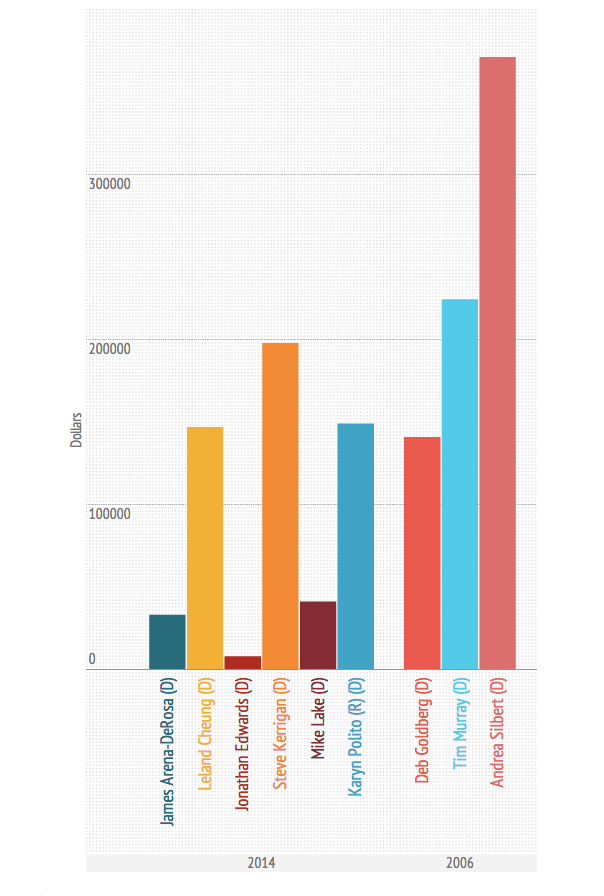Chart of the Week: Governor and Lieutenant Governor Funding, Now vs. Then
Steve Grossman did a little boasting to the press this week, announcing that his campaign account balance has topped a million dollars. That war chest does indeed put him out front among gubernatorial candidates, and more than double the next Democrat, Martha Coakley.
But a little perspective is in order: that million isn’t even one-third of what Tom Reilly had amassed by this point in his 2006 campaign.
Poor fundraising has been a defining characteristic of the 2014 run for governor and lieutenant governor, as you can see from these charts comparing the accounts of this year’s candidates with those of eight years ago—the last open race for the seat:
GOVERNOR
Campaign accounts as of January 31 / 2014 vs. 2006

Infographics created with infogr.am
LIEUTENANT GOVERNOR
Campaign accounts as of January 31 / 2014 vs. 2006

The comparison actually understates the difference—and not just because campaign costs, from TV advertising to postage, have risen. By this point in 2006, Deval Patrick had already spent $1.5 million since the start of the previous year, and had a powerful statewide organization to show for it. None of this year’s candidates, including Grossman, has spent even half that amount.
Plus, some of those 2006 candidates didn’t need to raise money—they had their own. Chris Gabrieli, who had not entered the race at this point in 2006, spent more than $8 million out of his pocket; Kerry Healey kicked in $10 million; Deb Goldberg anted more than $2 million. This year’s crop isn’t exactly impoverished, but there’s not much indication we’re going to see those levels of self-funding.
I’ve been told that the slow action stems from our recent cycle of special elections, which has left the state’s political check-writers drained. I also suspect that many are not yet enthused about their options, and are waiting to be wowed.
Whatever the root causes, the upshot is this: if the candidates can’t pick up the pace significantly by summer, you’re not going to see or hear much from them, creating a vacuum that independent-expenditure groups will be all too happy to fill.


